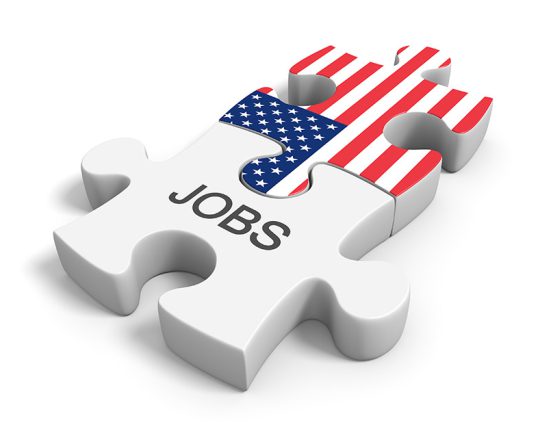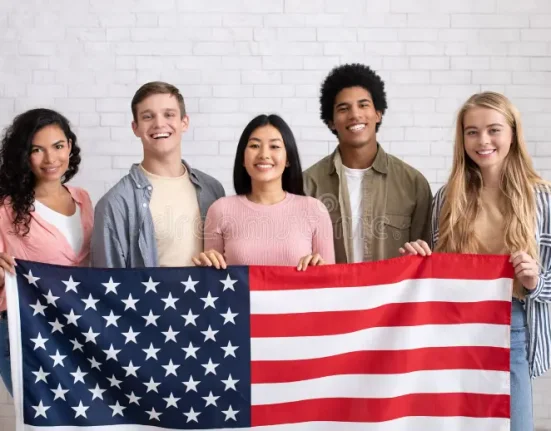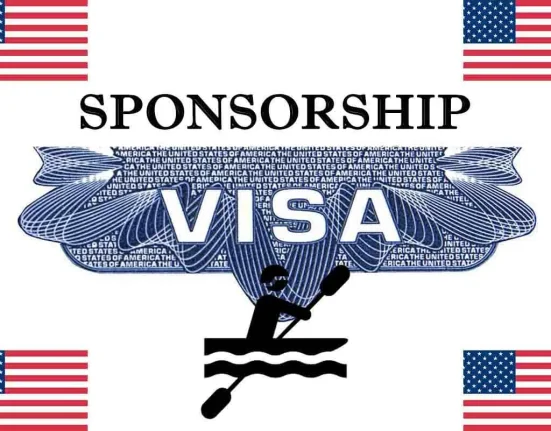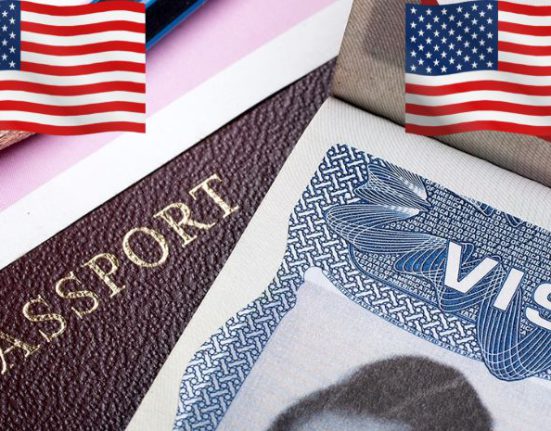Dreaming of working and living in the United States? You’re not alone. Each year, countless professionals, students, and families set their sights on America, drawn by opportunities for career growth, higher education, or simply a better quality of life. But for many, the key to unlocking these dreams lies in one crucial process: U.S. visa sponsorship.
Navigating the world of U.S. visa sponsorship can be overwhelming—there are forms to fill out, eligibility criteria to meet, interviews to pass, and even specific companies that might sponsor your journey. This comprehensive guide will break down everything you need to know about U.S. visa sponsorship opportunities, covering everything from employment-based visas, such as the H-1B, L-1, and O-1, to family-based sponsorships and investment visas.
Visa sponsorship is when a U.S. employer or a family member petitions the United States Citizenship and Immigration Services (USCIS) on your behalf, helping you obtain the legal status needed to live and work in the country. Sponsorship involves an organization or individual taking responsibility for you—financially and legally—as you enter the United States. It often involves demonstrating to USCIS that there is a need for your skills, that there are no qualified American citizens to fill the job, or that your family connection is a legitimate basis for your move.
To understand U.S. visa sponsorship, it’s helpful to explore the types of visas available, as these dictate the route and requirements for getting sponsorship. In this section, we will discuss the primary visa types, including employment-based, family-based, and specialized visa categories that offer opportunities for talented individuals worldwide.
Employment-Based Visa USA: Opportunities for Career Seekers
Employment-based visas are among the most common routes for those seeking to work in the United States. These visas fall into multiple categories, each targeting different skill levels, occupations, and requirements:
- H-1B Visa: This is one of the most popular U.S. work visas. The H-1B visa allows U.S. employers to hire foreign workers in specialty occupations—particularly in fields like technology, finance, engineering, healthcare, and education. However, the competition for H-1B visas can be fierce due to the annual cap. Companies like Google, Amazon, and Deloitte are known to sponsor large numbers of H-1B visas each year. Applying for an H-1B requires sponsorship from a U.S. employer willing to submit a petition on your behalf.
- L-1 Visa: Designed for individuals who work for a multinational company and are transferring to a U.S. office, the L-1 visa is popular for managerial or executive roles. This visa allows businesses to transfer employees from overseas branches to the United States and is commonly used by tech giants and consulting firms.
- O-1 Visa: If you possess extraordinary ability in arts, science, business, education, or athletics, the O-1 visa might be for you. Often called the “genius visa,” the O-1 is for those who have demonstrated extraordinary achievements in their field.
EB-3 and EB-5 Visas: The EB-3 visa is designed for skilled workers, professionals, and other workers, while the EB-5 visa provides a pathway to permanent residency for individuals investing in U.S. businesses. The EB-5 visa requires a significant financial commitment, but it offers a relatively fast track to a Green Card.
Top U.S. Companies Offering Visa Sponsorship
If you’re seeking employment-based sponsorship, knowing which companies are more likely to sponsor foreign talent can give you a significant advantage. Several industries are more open to hiring internationally, including technology, finance, healthcare, and engineering.
The Tech Titans: Where Innovation Meets Opportunity
Imagine walking into the headquarters of Google or Apple, feeling the buzz of innovation all around you. Tech giants like these aren’t just leading in technology; they’re leading in embracing global talent. Companies such as Google, Amazon, Microsoft, Apple, and Facebook are renowned for their international recruitment programs. They scour the globe for the brightest minds in software development, data science, artificial intelligence, and more.
Why are they so keen on international talent? The tech industry thrives on fresh ideas and diverse perspectives. By bringing in professionals from different cultures and backgrounds, these companies fuel creativity and stay ahead in a rapidly evolving field. If you have a knack for technology and a passion for innovation, these companies might be your gateway to an exciting career in the U.S.
Consulting Firms: Solving Complex Problems on a Global Scale
Picture yourself in a boardroom, strategizing solutions for a multinational corporation. Consulting firms like Deloitte, Accenture, PwC, and EY offer such dynamic environments. They frequently sponsor visas for foreign professionals, especially in management consulting, IT consulting, and advisory services.
These firms handle projects that span continents and industries. Your international perspective isn’t just welcomed; it’s essential. They understand that complex global problems require diverse teams with varied experiences. If you’re skilled in analyzing challenges and crafting strategic solutions, the consulting world might be your perfect match.
Financial Institutions: Navigating the World of Finance
Envision working in the heart of Wall Street, contributing to decisions that shape the global economy. Leading banks and financial institutions like Goldman Sachs, JPMorgan Chase, Citigroup, and Morgan Stanley are on the lookout for talented individuals in finance, accounting, and investment banking.
The financial sector values precision, analytical thinking, and foresight. Your expertise could help these institutions navigate markets, manage risks, and seize opportunities. They offer visa sponsorship to those who can bring valuable skills to their teams. If numbers are your language and financial markets your passion, these companies could be your avenue to success.
Pharmaceutical and Healthcare Companies: Advancing Global Health
Think about being part of a team that develops life-saving medications or pioneering medical technologies. Pharmaceutical giants like Johnson & Johnson, Pfizer, and Merck often sponsor visas for foreign scientists, researchers, and healthcare professionals.
The healthcare industry is ever-evolving, with constant demand for innovation and expertise. Your contribution could lead to breakthroughs that improve lives worldwide. These companies recognize the importance of diverse scientific minds collaborating to push the boundaries of what’s possible in medicine.
Engineering and Manufacturing: Building the Future Together
Consider contributing to the next generation of aircraft or sustainable energy solutions. Engineering and manufacturing firms such as Boeing, Lockheed Martin, and General Electric regularly sponsor visas for foreign engineers, technicians, and skilled workers.
These industries are at the forefront of creating tangible products that shape our world. Your skills in engineering, design, or technical problem-solving could play a crucial role in their projects. They seek individuals who can bring new ideas and approaches to complex challenges.
Consumer Goods and Retail: Influencing Everyday Lives
Imagine shaping the products and services that people use daily. Companies like Procter & Gamble, Nike, Walmart, and Target may sponsor visas for foreign professionals in marketing, supply chain management, and retail operations.
The consumer goods and retail sector is all about understanding people and delivering value. Your insights into global markets and consumer behaviors can help these companies stay competitive. They value professionals who can navigate cultural nuances and drive growth in diverse markets.
Startups and Emerging Companies: Where Innovation Meets Agility
Now, picture yourself in a dynamic startup environment, where your ideas can quickly become reality. Many startups and smaller companies offer visa sponsorship, especially for exceptional candidates with specialized skills in niche areas.
Startups are often on the cutting edge of technology and innovation. They might not have the brand recognition of larger firms, but they offer unique opportunities to make a significant impact. Your specialized skills could be exactly what they need to take their products or services to the next level.
Universities and Research Institutions: Pioneering Knowledge and Discovery
Finally, think about contributing to academia or groundbreaking research projects. Academic institutions and research centers frequently sponsor visas for foreign professors, researchers, and scholars.
These environments are all about advancing knowledge and fostering learning. Your expertise can enrich educational programs, inspire students, and contribute to important research initiatives. If you’re passionate about teaching or research, universities might be your ideal destination.
The U.S. Visa Sponsorship Process
The visa sponsorship process can be daunting, but breaking it down into clear steps can make it easier to understand:
- Job Offer: To qualify for an employment-based visa, you must first secure a job offer from a U.S. company. The company must be willing to act as your sponsor, which involves demonstrating to the USCIS that you are the best fit for the position and that no American worker is readily available to fill the role.
- Labor Certification: For some visas, like the H-1B and EB-3, your employer may need to obtain labor certification from the U.S. Department of Labor. This process ensures that hiring a foreign worker will not negatively impact wages or employment opportunities for U.S. workers.
- Petition Filing: The sponsoring company files a petition (typically Form I-129 for employment visas) with USCIS. If approved, you will be notified, and the petition will be forwarded to the National Visa Center (NVC).
- Visa Application: Once the petition is approved, you can apply for a visa at a U.S. embassy or consulate. This process involves filling out Form DS-160, paying application fees, and scheduling an interview.
- Visa Interview: During the interview, a consular officer will ask questions to verify the authenticity of the job offer, your qualifications, and your intent to work in the U.S. It is crucial to be well-prepared and to provide all required documentation, including proof of your relationship with the sponsor, your employment contract, and any necessary financial documents.
Family-Based U.S. Visa Sponsorship
Another common route to living in the U.S. is through family-based sponsorship. This option allows U.S. citizens and permanent residents to sponsor family members to join them in the United States. Family-based sponsorship can be divided into two main categories:
- Immediate Relative Immigrant Visas: These are for spouses, parents, and unmarried children under 21 of U.S. citizens. There is no limit on the number of visas issued annually in this category, making it one of the quickest ways to secure permanent residency.
- Family Preference Immigrant Visas: These visas are for more distant relatives, including siblings of U.S. citizens and spouses and children of Green Card holders. Unlike immediate relative visas, there is an annual cap on the number of family preference visas issued.
To apply, your sponsoring relative must submit Form I-130, Petition for Alien Relative, to USCIS. The approval process can take anywhere from a few months to several years, depending on your relationship and the country of origin.
Financial Support and the Affidavit of Support
For both employment-based and family-based sponsorships, the sponsor must demonstrate that they can financially support the visa applicant if necessary. This requirement is met by submitting an Affidavit of Support (Form I-864), which serves as a contract between the sponsor and the U.S. government, ensuring the immigrant will not become a public charge.
The sponsor must prove they have sufficient income or assets to support the applicant at 125% of the U.S. poverty level. This requirement is critical, as failing to meet the financial threshold can lead to visa denial.
Investor Visas and Pathways to Permanent Residency
If you have significant financial resources and are looking to move to the U.S., the EB-5 Investor Visa may be an option. This visa requires an investment of at least $1 million in a U.S. business (or $800,000 in a targeted employment area), which must create or preserve at least ten full-time jobs for U.S. workers.
The EB-5 visa provides a relatively straightforward path to a Green Card, and many applicants eventually apply for U.S. citizenship. It is an attractive option for those with the financial capacity to invest and who wish to gain permanent residency quickly.
Visa Sponsorship for Students and Exchange Visitors
For students, obtaining sponsorship is a bit different. Most students enter the United States on an F-1 visa, which allows them to pursue their studies while also providing opportunities to work part-time under Optional Practical Training (OPT). After graduation, many students seek H-1B visa sponsorship from employers to continue working in the United States.
Another option for cultural exchange and educational experiences is the J-1 visa, which includes categories for scholars, interns, teachers, and au pairs. Many J-1 visa holders later transition to employment-based visas if they find a sponsoring employer.
Sponsorship for Healthcare Professionals
The U.S. healthcare industry consistently has a high demand for skilled professionals, which means visa sponsorship opportunities are plentiful for doctors, nurses, therapists, and other healthcare providers.
- Nurses and Medical Practitioners: The H-1B and EB-3 visas are commonly used for nurses and other healthcare workers. There are also specialized visa categories, such as the H-2B for temporary or seasonal employment, which are often used by healthcare facilities to address temporary staffing shortages.
- Requirements for Healthcare Visas: Healthcare professionals must meet U.S. certification standards, which may involve passing examinations such as the USMLE for doctors or gaining credentials through recognized U.S. boards. Sponsoring hospitals and healthcare facilities usually help applicants navigate these certification processes.
Visa Sponsorship for Skilled and Unskilled Workers
While much focus is often placed on visas for highly skilled professionals, there are also visa opportunities for unskilled or semi-skilled workers, particularly in industries such as agriculture, hospitality, and construction. The H-2A and H-2B visas are commonly used for seasonal work in these industries.
- H-2A Visa: This visa is specifically for temporary agricultural workers and is used by U.S. employers or agents who meet specific regulatory requirements.
- H-2B Visa: For non-agricultural temporary workers, the H-2B visa allows U.S. employers to bring foreign nationals to the United States to fill seasonal or peak-load needs in sectors like hospitality, landscaping, and food services.
Tips for Finding Visa Sponsorship Jobs
Knowing where opportunities exist is just the first step. How do you position yourself to secure a role with visa sponsorship? Here are some strategies to enhance your prospects:
- Conduct Thorough Research: Dive deep into your industry to identify companies known for sponsoring visas. Use company websites, industry reports, and professional networks to gather information.
- Leverage Professional Networks: Connect with industry professionals through platforms like LinkedIn. Join groups related to your field and participate in discussions to increase your visibility.
- Attend Job Fairs and Networking Events: These events are golden opportunities to meet recruiters and learn about openings. Some job fairs are specifically geared toward international candidates.
- Utilize Online Job Platforms: Websites dedicated to job seekers, especially those focusing on international opportunities, can be valuable resources.
- Tailor Your Applications: Customize your resume and cover letter for each application, highlighting how your skills meet the company’s needs.
- Prepare for Interviews: Be ready to discuss not only your technical skills but also how you can contribute to the company’s goals.
- Understand Visa Requirements: Familiarize yourself with the visa process so you can address any concerns employers might have.



